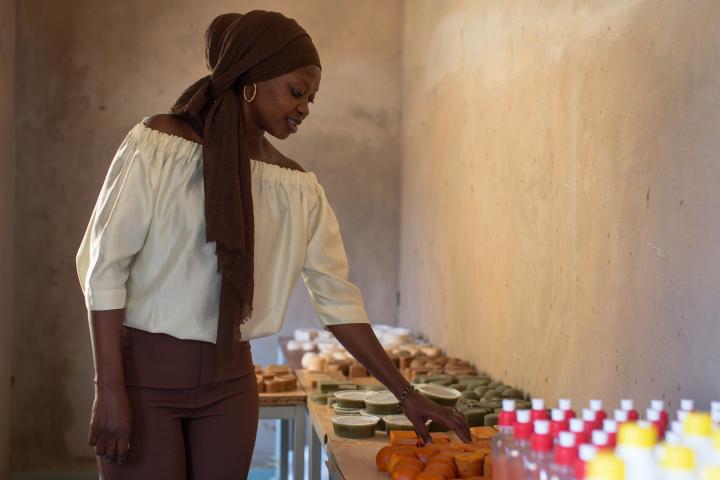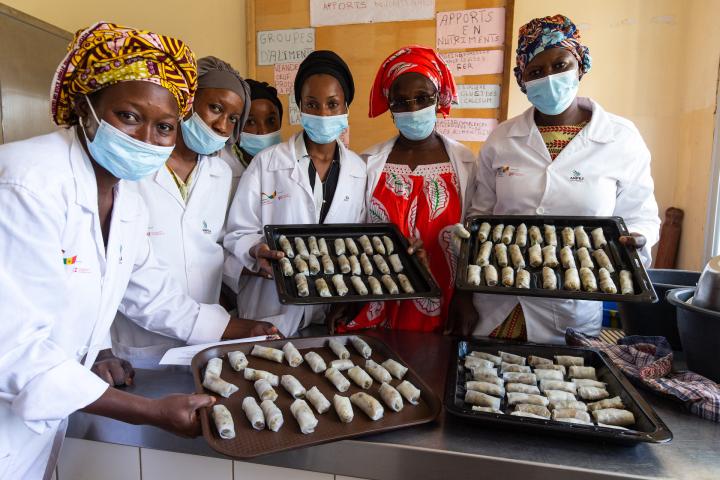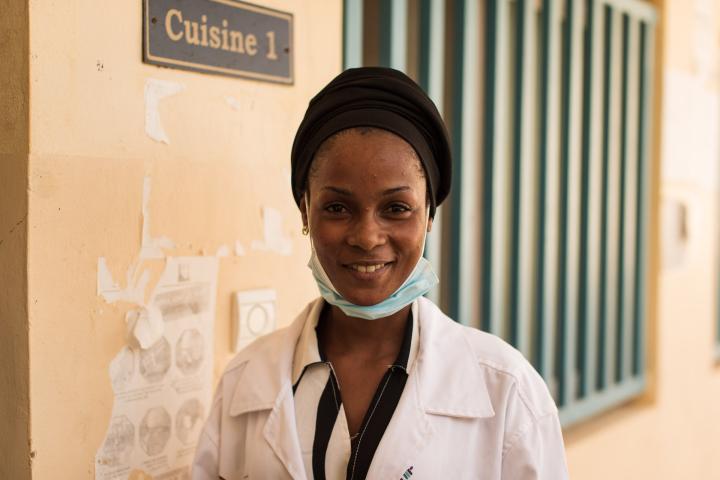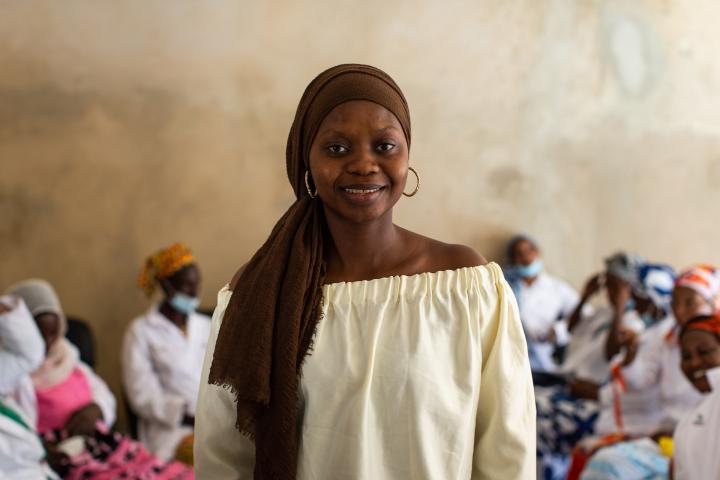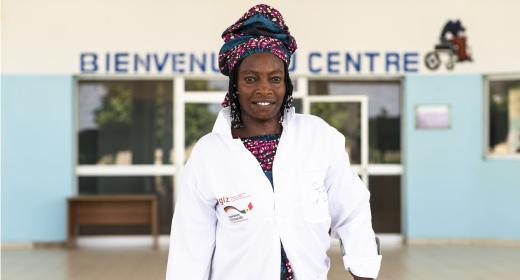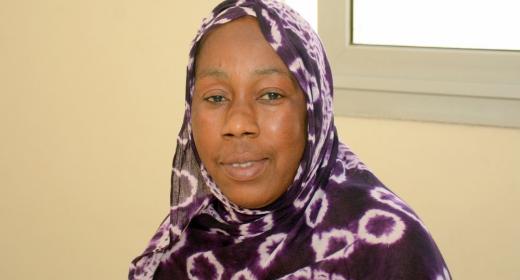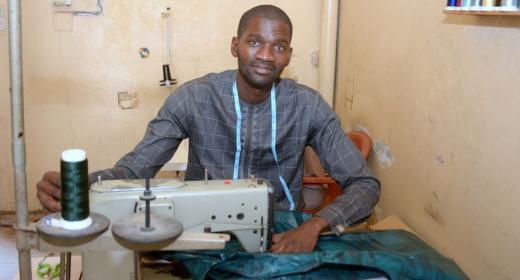The Senegalese-German Centre for Jobs, Migration and Reintegration (CSAEM) provides various training courses for the local population in Senegal, covering IT training through to soap production. These courses help people who want to start their own business. They also develop the knowledge of those who are already self-employed, which can be useful when an existing business needs to be expanded.
Women are looking for job alternatives
Most women in Senegal have limited access to land ownership or no access at all, because certain traditions exclude women from owning land. That’s why many women are looking for business opportunities aside from agriculture to provide them with a livelihood. They want to lead a self-determined and financially independent life. The CSAEM in Senegal regularly organises training courses that are designed to help women and girls in particular. This then enables them to obtain qualifications that offer good job prospects. The training courses offered to the local population in the communes of Par, Ngaye, Guéoul, Linguère and Kébémer in the north-western Louga region at the end of 2021 are a good example of this.

